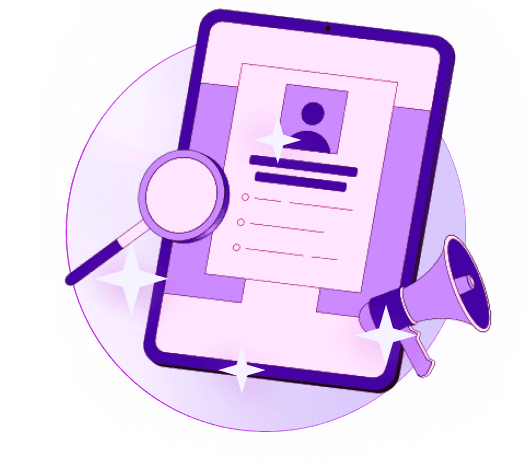Blogs
Articles


Compliant B2B Data: A 2026 Guide to Privacy and Quality Standards
GDPR fines for non-compliant B2B data practices can reach €20 million or 4% of global revenue, whichever is higher.
Privacy laws have changed by a lot in 2024. Five new privacy regulations are already active, and three more will take effect this year. Business contact information qualifies as personal data under these regulations, even when collected professionally. Companies that operate without proper consent or legal basis face more than financial penalties—their reputation stands at risk.
A real-world example proves this point. One Series B SaaS company bought 8,000 CFO contacts to promote their whitepaper. They received a complaint through the UK's Information Commissioner's Office just two weeks later. This case explains how quickly compliance problems can escalate under current regulations.
Business contact data now falls explicitly under several major data privacy regulations, particularly when linked to specific individuals. The year 2025 brings stricter standards ahead. The American Privacy Rights Act might soon introduce federal standards that match Europe's GDPR.
This detailed piece will guide you through the evolving world of B2B data compliance. You'll learn exactly how to collect, manage, and employ business contact information while staying compliant with current and upcoming privacy laws.
Why B2B Data Compliance Matters in 2026?
B2B data privacy has changed fundamentally in 2026.
The end of the B2B exemption myth
Many businesses believed B2B data wasn't subject to privacy regulations. This myth ended when California's B2B exemption expired on January 1, 2023. The California Consumer Privacy Act now fully protects personal information of business contacts.
Business email addresses with names (like janedoe@business.com), phone numbers, and IP addresses that identify individuals now qualify as protected personal data. Freelancers and one-person businesses blur the lines since their business data links directly to an identifiable person.
How new data privacy laws affect business contacts
Privacy legislation has gained momentum rapidly. Five new state privacy laws are active this year and three more will take effect later in 2025. The landscape continues to evolve as 19 states have complete data protection laws ready to roll out through 2026.
These new regulations bring major changes:
Stricter data minimization requirements – Maryland restricts data collection to what companies need to provide requested services
Standardized opt-out mechanisms are becoming accessible to more people across Delaware, Nebraska, Minnesota, New Hampshire, New Jersey and Maryland
Enhanced children's privacy protections – All new state laws label children's data as sensitive and add restrictions for teens aged 13-17
What is data compliance in a B2B context?
Data compliance means handling personal and sensitive information according to regulatory requirements, industry standards and internal policies. B2B operations must manage both business and personal data components properly.
Non-compliance carries heavy costs. IBM reports the global average cost of a data breach reached $4.45 million in 2023. GDPR violations can result in fines up to 4% of annual global turnover or €20 million, whichever is greater.
Companies that follow compliant B2B data practices build trust, improve security, and gain competitive advantages through their steadfast dedication to responsible data stewardship.
Key Legal Frameworks and What’s Changed
Legal frameworks play a vital role in keeping B2B data practices compliant. Major privacy laws have altered the map of regulations dramatically.
GDPR-compliant B2B data characteristics
Lawful processing grounds stand at the heart of GDPR compliance for B2B data. Business contact information needs one of six legal bases. Legitimate interest or consent are the most relevant ones. Your data use must not override individual's rights under legitimate interest. More than that, B2B data compliance needs:
Clear documentation that shows how you got the data and its source
Records that track usage throughout the data lifecycle
Data minimization principles that collect only needed information
GDPR-compliant B2B data must be clear about its source. It needs explicit purpose limits and accurate processing records.
CCPA and state data privacy laws updates
Many states now have detailed privacy laws after California took the lead. Virginia, Colorado, Connecticut, and Utah each created their own rules with different requirements. These laws include specific rules that affect B2B data:
Most temporary B2B exemptions have expired or will end soon. Business representatives get full rights as data subjects under Colorado's law. New state laws like Oregon's now use "reasonably necessary" standards that match GDPR's minimization principles.
New data protection laws in global markets
Data protection frameworks keep getting stronger in global markets. Brazil's LGPD looks like GDPR but adds its own controller categories. China's PIPL demands strict data localization and has special rules for cross-border transfers.
The UK keeps its GDPR alignment after Brexit but suggests business-friendly changes. Canada's reformed PIPEDA adds stronger consent rules that specifically target B2B scenarios.
Global organizations need tailored compliance strategies that work with each jurisdiction's rules. These frameworks overlap and create complex requirements.
Building a Compliant B2B Data Workflow
A structured approach helps create a reliable system for compliant B2B data handling. Let's get into the key steps you need to build a workflow that meets current privacy standards.
Step 1: Lawful and transparent data collection
Your B2B data must come from legitimate sources. LinkedIn opt-in forms, website signups with explicit checkboxes, conference attendees who agreed to share information, and vendor lists with proper disclosure serve as acceptable collection methods. You should stay away from scraped lists, purchased emails from unknown brokers, and auto-enriching tools that add personal information without disclosure.
Step 2: Purpose limitation and consent management
Purpose limitation means you state clearly why you collect data and use it only for that specific reason. Each purpose needs its own opt-in checkbox. GDPR and CCPA require you to define processing purposes upfront and communicate them clearly to data subjects. This principle stops you from repurposing data for unrelated processing without getting new consent.
Step 3: Documentation and audit trails
Complete records are non-negotiable. Your system should track each contact's origin, consent details, and legal basis for outreach. Audit trails create tamper-resistant logs that capture user activity, including document access, edits, and approvals. These records help you comply with regulations like HIPAA, GDPR, and SOX.
Step 4: Honoring data subject rights
Your system needs processes to handle data subject requests. Most global privacy laws allow B2B contacts to ask for access to their data, deletion, removal from processing, and file complaints. You must respond to these requests within 30 days or less.
Step 5: Outreach that respects priorities
Segment your outreach based on consent status, geography, and purpose. Make unsubscribe options easy to find. Handle opt-out requests quickly within two business days and remove contacts permanently from your lists.
You can learn more about building preference management systems at Persana.ai.
Maintaining Compliance and Avoiding Pitfalls
Strong data workflows help, but you need to watch out for common pitfalls to stay compliant. The right B2B data practices build trust and help you avoid regulatory penalties.
Common mistakes in B2B privacy policy
Privacy policies often have flaws that can hurt your compliance efforts. Companies make several common errors. They write policies in complex language that confuses readers. They use pre-checked boxes instead of getting clear consent. They hide policies where users can't find them easily. You need to update policies when practices change - regulators might see outdated policies as intentional deception.
How to vet third-party vendors
Getting a full picture of data providers is vital to stay compliant. Here's what you should look at when checking vendors:
Data collection methods and sources that line up with regulations
Security certifications (SOC-2 and ISO27001)
Internal data handling and encryption practices
Documentation and transparency tell you a lot about a vendor. Be careful if vendors won't share their data sources - that's a big red flag. A detailed review process creates proof that shows you follow regulations.
Training teams on data privacy rules
The best privacy training does more than yearly compliance modules. Teams need training that fits their roles - IT teams need different information than customer support. Short, frequent lessons work better than yearly sessions. Real examples make these lessons stick.
Using compliant B2B data APIs and tools
Pick providers whose APIs follow GDPR and CCPA rules. DaaS providers give you more than basic APIs. You get multiple delivery options, constant validation, and help to stay within regulations. Persana.ai offers detailed tools that make data governance simpler while meeting regulatory standards.
Conclusion
B2B data compliance has become crucial to business success in 2026. Privacy regulations now treat business contact information as personal data that deserves protection. Companies must adapt their data practices or face what it all means.
The B2B exemption myth no longer exists, as California took the lead by ending such exceptions in 2023. On top of that, privacy laws keep emerging in states and global markets. This creates a patchwork of requirements that businesses must handle.
Compliant workflows serve as the life-blood of responsible data management. Your organization should start with lawful collection methods and move through purpose limitation, detailed documentation, and respect for data subject rights. These practices must become part of your organization's DNA rather than one-time compliance exercises.
Organizations that follow these standards do more than avoid penalties. They build trust with prospects and customers through transparent data practices. Their proper management systems boost operational efficiency instead of slowing it down.
The future will without doubt bring more regulatory changes as privacy awareness grows worldwide. Then, businesses with flexible compliance frameworks will adapt quickly. Note that compliant B2B data goes beyond meeting legal requirements – it marks a radical move toward ethical business practices that respect individual privacy rights whatever the context.
Key Takeaways
B2B data compliance is no longer optional it's a business imperative that protects your company from severe financial penalties while building customer trust in an increasingly regulated landscape.
• The B2B exemption myth is dead: Business contact data is now fully protected under privacy laws, with California ending exemptions in 2023 and 19 states implementing comprehensive data protection through 2026.
• Build transparent data workflows: Implement lawful collection methods, document consent properly, maintain audit trails, and honor data subject rights within 30 days to stay compliant.
• Vet your data sources rigorously: Only use vendors with clear collection methods, security certifications, and transparent practices scraped lists and unknown brokers pose major compliance risks.
• Train teams on role-specific privacy rules: Move beyond annual compliance modules to provide ongoing, job-function-specific training that makes privacy practices part of your company culture.
• Non-compliance costs are severe: GDPR fines reach €20 million or 4% of global revenue, while data breaches average $4.45 million making compliance investments essential protection.


Create Your Free Persana Account Today
Join 5000+ GTM leaders who are using Persana for their outbound needs.
How Persana increases your sales results
One of the most effective ways to ensure sales cycle consistency is by using AI-driven automation. A solution like Persana, and its AI SDR - Nia, helps you streamline significant parts of your sales process, including prospecting, outreach personalization, and follow-up.

